Carl E. Olson's Blog, page 257
December 12, 2011
"Hail, Mother of Mexico! Mother of Latin America!"
From a January 27, 1979, homily given by Blessed John Paul II at the Basilica of Guadalupe during his Apostolic Journey to the Dominican Republic, Mexico, and the Bahamas:
Hail Mary!
It is with immense love and reverence that I utter these words, words so simple and at the same time so marvellous. No one will ever be able to greet you in a more wonderful way than the way in which the Archangel once greeted you at the moment of the Annunciation. Hail Mary, full of grace, the Lord is with thee. I repeat these words, words that so many hearts ponder upon and so many lips utter throughout the world. We here present 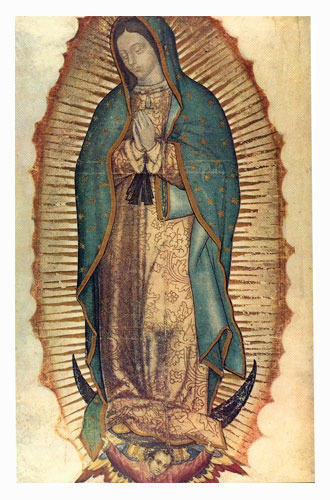 utter them together, and we are aware that these are the words with which God himself, through his messenger, greeted you, the woman promised in the Garden of Eden, chosen from eternity as the Mother of the Word, the Mother of Divine Wisdom, the Mother of the Son of God. ...
utter them together, and we are aware that these are the words with which God himself, through his messenger, greeted you, the woman promised in the Garden of Eden, chosen from eternity as the Mother of the Word, the Mother of Divine Wisdom, the Mother of the Son of God. ...
Hail, Mother of God!
Your Son Jesus Christ is our Redeemer and Lord. He is our Teacher. All of us gathered here are his disciples. We are the Successors of the Apostles, of those to whom the Lord said: "Go therefore and make disciples of all nations, baptizing them in the name of the Father and of the Son and of the Holy Spirit, teaching them to observe all that I have commanded you; and lo, I am with you always, to the close of the age." (Mt 28:19-20). ...
Let me, John Paul II, Bishop of Rome and Pope, together with my Brothers in the Episcopate representing the Church in Mexico and the whole of Latin America, at this solemn moment entrust and offer to you, the handmaid of the Lord, the whole heritage of the Gospel, the Cross, and the Resurrection, of which we are all witnesses, apostles, teachers, and bishops.
O Mother, help us to be faithful stewards of the great mysteries of God. Help us to teach the truth proclaimed by your Son and to spread love, which is the chief commandment and the first fruit of the Holy Spirit. Help us to strengthen our brethren in faith, help us to awaken hope in eternal life. Help us to guard the great treasures stored in the souls of the People of God entrusted to us.
We offer you the whole of this People of God. We offer you the Church in Mexico and in the whole continent. We offer it to you as your own, You have entered so deeply into the hearts of the faithful through that sign of your presence constituted by your image in the Shrine of Guadalupe; be at home in these hearts, for the future also. Be at home in our families, our parishes, missions, dioceses, and in all the peoples.
Do this through the Holy Church, for she, in imitation of you, Mother, wishes in her turn to be a good mother and to care for souls in all their needs, by proclaiming the Gospel, administering the Sacraments, safeguarding family life with the sacrament of Matrimony, gathering all into the Eucharistic community by means of the Holy Sacrament of the altar, and by being lovingly with them from the cradle until they enter eternity.
O Mother, awaken in the younger generation readiness for the exclusive service of God. Implore for us abundant local vocations to the priesthood and the consecrated life.
O Mother, strengthen the faith of our brothers and sisters in the laity, so that in every field of social, professional, cultural and political life they may act in accordance with the truth and the law brought by your Son to mankind, in order to lead everyone to eternal salvation and, at the same time, to make life on earth more human, more worthy of man. ...
Queen of the Apostles, accept our readiness to serve unreservedly the cause of your Son, the cause of the Gospel and the cause of peace based on justice and love between individuals and peoples.
Queen of Peace, save the nations and peoples of the whole continent—they have so much trust in you—from wars, hatred and subversion.
Make everybody, whether they are rulers or subjects, learn to live in peace, educate themselves for peace, and do what is demanded by justice and respect for the rights of every person, so that peace may be firmly established.
Accept our trustful offering, O handmaid of the Lord. May your maternal presence in the mystery of Christ and of the Church become a source of joy and freedom for each and every one, source of that freedom through which "Christ has set us free" (Gal 5:1), and the end a source of that peace that the world cannot give but which is only given by him, by Christ (cf. Jn 14:27).
Finally, O Mother, recalling and confirming the gesture of my Predecessors Benedict XIV and Pius X, who proclaimed you Patroness of Mexico and of the whole of Latin America, I present to you a diadem in the name of all your Mexican and Latin-American children, that you may keep them under your protection, preserve their harmony in faith and their fidelity to Christ, your Son. Amen
Read the entire homily.
Related, on Ignatius Insight:
• A Delectable Fruit of the Cactus for the Eagle | Paul Badde | Chapter One of María of Guadalupe: Shaper of History, Shaper of Hearts
• The Blessed Virgin in the History of Christianity | John A. Hardon, S.J.
• Mary in Byzantine Doctrine and Devotion | Brother John M. Samaha, S.M.
• Fairest Daughter of the Father: On the Solemnity of the Assumption | Rev. Charles M. Mangan
• "Hail, Full of Grace": Mary, the Mother of Believers | Joseph Cardinal Ratzinger
• Mary in Feminist Theology: Mother of God or Domesticated Goddess? | Fr. Manfred Hauke
• Excerpts from The Rosary: Chain of Hope | Fr. Benedict Groeschel, C.F.R.
• The Past Her Prelude: Marian Imagery in the Old Testament | Sandra Miesel
• Immaculate Mary, Matchless in Grace | John Saward
• The Medieval Mary | The Introduction to Mary in the Middle Ages | by Luigi Gambero
• Misgivings About Mary | Dr. James Hitchcock
• Born of the Virgin Mary | Paul Claudel
• Assumed Into Mother's Arms | Carl E. Olson
• The Disciple Contemplates the Mother | Erasmo Leiva-Merikakis
"I think he would ask that we define our terms..."
From a just posted National Catholic Register interview with Joseph Pearce about the new edition of his biography, Solzhenitsyn: A Soul in Exile:
The Soviet Union disintegrated in the late 1980s, early 1990s, and most of the world believes that communism is pretty much dead and no longer a threat. Do you think that if Solzhenitsyn were alive today, would he be at ease with that assessment?
I think he would ask that we define our terms.
In one sense, of course, the secular fundamentalist experiment which was the Soviet Union floundered and fell after almost a century of bloody excesses culminating ultimately in the killing of tens of millions of people. But it did flounder and fall in the late '80s and early '90s. But what we're really talking about here is big government, and big government animated by a secular fundamentalist philosophy. In other words, ultimately, that enemy is still very much present and we are still in danger of lurching blindly in a belief that problems can be solved by big government and that problems that are caused by the lack of God can be solved by a godless response.
So in that sense the lessons haven't been learned, and the lessons haven't been learned in the West, absolutely, that we could be lurching toward a secular fundamentalist big government, regardless of whether or not it quotes Karl Marx, it's basically of the same spirit. That's exactly what Solzhenitsyn was getting at in his Harvard address — that the spirit that unites communism and decadent materialism in the West is this secular fundamentalist materialism, this atheism at the root of politics and the root of society and how that leads ultimately to a culture of death.
Read the entire interview (authored by John Burger), "Alexander Solzhenitsyn on the Culture of Death" (Dec. 11, 2011). And read my May 20, 2011, Ignatius Insight interview with Joseph about the same book:

Recent reviews...
... of recently released Ignatius Press books include the following remarks:
• The "Eurobishop", David Hamid, on Man, the Image of God: The Creation of Man as Good News by Christoph Cardinal Schönborn:
Drawing on the insights of philosophy, theology, science and art the Cardinal reflects on what it means to say that human beings have this incomparable dignity and to claim that all the works of God in creation converge towards, and find their fulfilment in, humanity and that humanity in turn was made for a relationship with God that is made possible through the work of Christ. As the title of the book suggests, he also explains why it is good news to see human beings in this light, not simply as the end product of impersonal processes of natural selection but as the objects of God's love and of His personal and providential care. This is an important study that will be of benefit to anyone who wants to explore the common Christian belief in the unique dignity of human beings as those made in God's image and to think further about how to explain and commend this belief to others.
Read the entire review. And read the Introduction to Man, the Image of God, on Ignatius Insight: "Icons and the Mystery of Christ".
• Sarah Reinhard on Michael O'Brien's new novel, The Father's Tale: A Novel:
The Father's Tale, by Michael O'Brien, is an impressive book to look at. It clocks in over 1000 pages and is not for the faint of heart. 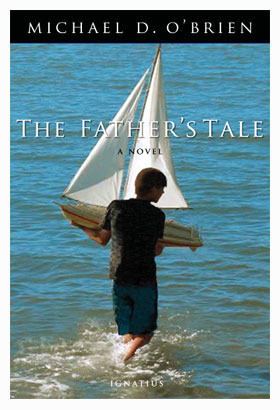
It's a LOT of reading.
But wow! WHAT reading!
Here's literature in the modern day, a little slice of what Dickens might look like if he were writing now. These characters are richly written and real people.
I've never been to Russia, and before I read this, I would have thought it unlikely that I would ever go. O'Brien makes his story a journey, and while you may not feel that you need to know how everything looks, I didn't find it overwhelming or to be too much.
In other words, I loved the book.
Read her entire review on the SnoringScholar blog.
• Julie Davis has recorded her thoughts about the same novel as she read it:
UPDATE 2
Obviously now at about 350 pages into the book, I'm in for the long haul. You'd think the story of a father trying to find and rescue his missing (college age) son from a religious cult would be sensational, quick paced, shocking! Well, no. However, as O'Brien tells it there is something that keeps pulling me along … he's telling the story well and I can feel for the father's uncertainty about what action to take, his constant worry about lack of funds (he's in Russia on the trail), and his worry over whether his son is being held against his will or whether this is the son's choice … and what to do if that is the case.
UPDATE 3 – 600 pages into the book
This is definitely an interesting tale in that it contrasts the usual thriller type fare of cults, being lost in a strange country with little more than the clothes on one's back, etc. with a slow, meditative pace. Even though we don't understand all that is going on, in fact we understand very little that is going on which makes us equal with the protagonist, there is food for thought sprinkled throughout the journey. I have never read Tolstoy so I can't say if this book is similar (as one endorser did), but it is definitely worth reading.
Read her entire post on the Happy Catholic's Bookshelf blog. Read the opening pages of The Father's Tale: A Novel on Ignatius Insight.
• Brandon Vogt of The Thin Veil recently read Fr. Robert Spitzer's new book, Ten Universal Principles: A Brief Philosophy of the Life Issues:
Without resorting to religion, Spitzer explores ten universal principles that apply to every human being. They include things like:
The Principle of Non-Contradiction
The Principle of Full Human Potential
The Principle of Natural Rights
The Principle of Beneficence
He then explores how each of the principles, when obeyed, lead to full and flourishing life but, when ignored, bring dysfunction and death. One of the most interesting sections contained his commentary on the infamous Roe v. Wade Supreme Court decision, which helped legalize abortion in 1973. Spitzer probes the decision line-by-line to show how illogical and baseless it was, and how it violates almost every one of these ten universal principles.
Read Brandon's entire review.
• Publisher's Weekly states the following about Teresa Tomeo's new book, Extreme Makeover: Women Transformed by Christ, Not Conformed to the Culture:
Have the past five decades of fighting for social and economic equality actually harmed women rather than helped 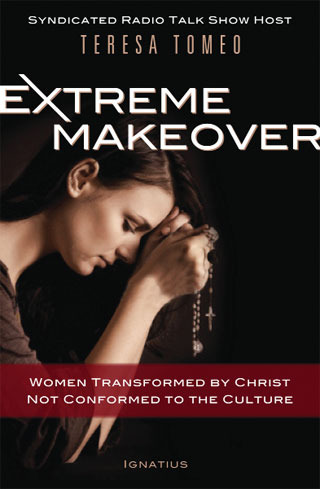 them? Tomeo, a syndicated Catholic talk show host and speaker, illustrates with clear examples how this seems to be the case. The author lays out her own conversion story up front, recounting how she accepted hook, line, and sinker the Western cultural message to women that they can have everything with no consequences. After consulting contemporary sociological research to show how women have been damaged by their supposed freedoms, the author then offers the teachings of the Catholic Church as a remedy. Catholicism, she claims, is the true path to freedom for women. The Catholic Church holds up the dignity of women in a culture that communicates overly sexualized messages to young girls and treats women as objects to be used for gratification. Included are personal testimonies from women who share their spiritual life journeys. The author's passion and appreciation for her faith are commendable, although some may recoil from her conservative views. Still, the cultural challenges she presents deserve a fair hearing.
them? Tomeo, a syndicated Catholic talk show host and speaker, illustrates with clear examples how this seems to be the case. The author lays out her own conversion story up front, recounting how she accepted hook, line, and sinker the Western cultural message to women that they can have everything with no consequences. After consulting contemporary sociological research to show how women have been damaged by their supposed freedoms, the author then offers the teachings of the Catholic Church as a remedy. Catholicism, she claims, is the true path to freedom for women. The Catholic Church holds up the dignity of women in a culture that communicates overly sexualized messages to young girls and treats women as objects to be used for gratification. Included are personal testimonies from women who share their spiritual life journeys. The author's passion and appreciation for her faith are commendable, although some may recoil from her conservative views. Still, the cultural challenges she presents deserve a fair hearing.
• And Nikita's Blog shares the following thoughts about Teresa's book:
I highly recommend this to all women, especially Catholic women. I would recommend also men to read this book. For it is not just about how women are being conformed to the culture but how men, too are being conformed by the actions of both.
I did find the majority of the book a great source of information, I felt myself devoted towards chapters seven and eight though. These two chapters really reflected upon a great examination of myself. It was a hard swallow, but it was the Holy Spirit I attribute for me to acknowledge that I need to take as Teresa calls a spa treatment for myself.
The one thing that literally was pulled out instantly was: "I am a daughter of the King".
Read the entire review. An excerpt from Extreme Makeover can be read on Insight Scoop: "Make a Concerted Effort to Silence the Noise in Your Life".
Is there a difference between an apologist and an apologizer?
It's not just a question for Catholics, as NRO's Jonah Goldberg notes at The Corner:
I love this item from Washington Post fact-checker Glenn Kessler. Romney says that Obama is going around the world apologizing for America. The headline: "Romney's claim that Obama is an apologist for U.S. is based on distortions."
Indeed!
An apologist is someone who zealously defends something, not someone who apologizes for its failures.
The WaPo piece has been corrected since Goldberg posted about it. But apparently no apology was made by fact-checker Kessler for confusing an apologist with an apologizer.
On a semi-related note, see my fact-checked essay, "Be A Catholic Apologist — Without Apology".
December 10, 2011
The Joyful, Particular Scandal of Advent
A Scriptural Reflection on the Readings for Sunday, December 11, 2011, the Third Sunday of Advent | Carl E. Olson
Readings:
• Is 61:1-2a, 10-11
• Lk 1:46-48, 49-50, 53-54
• 1 Thes 5:16-24
• Jn 1:6-8, 19-28
There is something offensive to many people about Advent and Christmas. It is what Apostle Paul described as a "stumbling block" to Jews and Gentiles alike (1 Cor. 1:18-25). Eastern Orthodox philosopher Richard Swinburne calls it "the scandal of particularity." It is the belief that God became man at a particular time and in a particular place, and that the God-man, Jesus Christ, is the unique Savior of mankind.
"Belief in the true Incarnation of the Son of God," the Catechism states, "is the distinctive sign of Christian faith" (par. 463). It's hardly news that this belief is often disparaged or dismissed by some non-Christians. Far more perplexing are attempts by Christians to deny the mystery of the Incarnation by rejecting the singular character of Jesus of Nazareth.
Recently, a Catholic priest in Australia posted online a manuscript he had written intending "to allow the man Jesus to be more authentic, and to make our Catholic religion more relevant." He glibly dismissed the Incarnation, writing, "God is big. Real big. No human being can ever be God. And Jesus was a human being. It is as simple as that!" He then took this denial to its logical conclusion. "For a Christian," he wrote, "to state that the fullness of redemption and salvation is to be found in Jesus Christ is not an acceptable statement for other faiths or religious traditions. And it is offensive to proclaim it as universal truth."
Yes, it is offensive. And it is also true! Today's readings present two great saints who not only proclaimed the truth about Jesus Christ but also gave offense—and continue to give offense—by being faithful to Him. They share in the "scandal of particularity," for they are closely united to Jesus, by both love and by blood.
The first is John the Baptist, who is always a central figure during Advent. Today's Gospel reading places a very Johannine emphasis on testimony, or witness. The Greek word—martyria—for "testify" or "witness" is also the root word for "martyr," and it appears over 25 times in the Fourth Gospel, as well as several times in the Book of Revelation.
This testimony "to the light" is a sure declaration of truth by one who has seen what he gives witness to. The Apostle John, in his first epistle, wrote about "what we have heard, what we have seen with our eyes, what we looked upon and touched with our hands concerns the Word of life," and then stated, "we have seen it and testify to it and proclaim to you the eternal life that was with the Father and was made visible to us." He had seen Jesus Christ in person. But John the Baptist had not only seen and known the Savior, he had recognized him while still in the womb (Lk. 1:41). He gave witness not only by word but also by deed: first, through preaching and baptism, then through martyrdom (Mk. 6:17-29).
The second saint is the Theotokos, the Blessed Virgin Mary. She causes scandal to some by her humility and her willingness to accept, in faith, an astounding message from God. She is a stumbling block to many because she, a lowly Jewish maiden, is the Mother of God; her womb was the Tabernacle of the Most High. Her proclamation, the Magnificat—part of it heard today during the responsorial—is the testimony of the perfect disciple: "My soul proclaims the greatness of the Lord; my spirit rejoices in God my savior."
Many people believe that religious doctrine—especially dogmas about Jesus Christ—leads to narrow-mindedness, bigotry, and even violence. In reality, it is the wellspring of joy, as Mary's canticle amply demonstrates. It is not enough to simply believe, or to proclaim—we are also called to rejoice and to worship. "Rejoice always," Paul writes to the Christians in Thessalonica, "Pray without ceasing. In all circumstances give thanks." Why? "For this is the will of God for you in Christ Jesus."
Such is the joyful, particular scandal of Advent.
(This "Opening the Word" column originally appeared in the December 14, 2008, edition of Our Sunday Visitor newspaper.)
December 9, 2011
"We don't know how to trust goodness." Or, what hath Tim Tebow wrought?
(Yeah, I know, you think the headline contains stilted language. Verily, verily, Shakespeare the Catholic and King James the Protestant doth love it.)
A number of recent articles have analyzed the interest in (or, in some cases, disdain for) Tim Tebow, the rookie second-year quarterback of the Denver Broncos, whose unapologetic displays of Christian belief (especially kneeling in prayer) has brought about much conversation and consternation. (His passing ability and throwing technique have also spurred controversy, but I won't spend time on that right now.)
Daniel Foster's piece, "Tebow's Religion, and Ours" (NRO, Dec. 3, 2011), makes many good points, beginning with this insight:
But there isn't an ironic bone in Tim Tebow's body. That's what makes him conspicuous. That's what makes the fact that he's managed to stay squeaky clean, in a sport that notoriously is not, conspicuous. And it's why the power of Tebow's evangelical-Christian faith, and the earnestness with which he professes it, seems to annoy so many people.
Foster examines some of the reasons that Tebow's actions and witness have upset other players and many football fans, and concludes with this:
A leader on the field and off who spent his college years not indulging in any of the worldly pleasures afforded to Heisman Trophy winners, but doing missionary work in Thailand; helping overworked doctors perform circumcisions in the Philippines (you read that right); and preaching at schools, churches, and even prisons. This is a young man with such a strong work ethic that, according to teammates, he can't even be coaxed into hitting the town on a night after a Broncos win, because he is too busy preparing for the next week's game. This is a young man who even turned the other cheek at Stephen Tulloch's Tebowing, saying, "He was probably just having fun and was excited he made a good play and had a sack. And good for him."
That's way too much earnestness for the ironic. It's way too much idealism for the cynical. And it's way too much selflessness for the self-absorbed. In short, people aren't upset at Tebow's God talk. They're upset that he might actually believe it.
Daniel Flynn, in a piece for Human Events, "The Tebow Haters" (Nov. 21, 2011), makes similar points:
Good people make bad people uncomfortable. Their example nudges everyone to undertake the hard work to be better. Our faults are so much easier to tolerate when we stand next to Jerry Sandusky.
More impressive than the on-field dramatics is the off-field demeanor. Tebow exhibited an infectious aw-shucks enthusiasm in his postgame interview with the NFL network. His namedropping of Jesus came across as heartfelt rather than perfunctory. He mouthed empty sports clichés with a strange conviction. He put a target on his back by plainly stating he wants to be a role model. As the highlight of his week, he pointed to a hospital his foundation helped build in the Philippines rather than the victory over the Jets.
Patton Dodd, in a just-posted essay, "Tim Tebow: God's Quarterback" (WSJ.com, Dec. 10, 2011), provides some interesting historical background regarding the relationship in America between religion and sports, then writes:
In communities across America, whether religious or secular, fields of play are often seen as workshops of character. Parents and coaches get kids involved with sports because they care about encouraging them to be better people.
At the national level, however, big-time sports is big business, with billions of dollars at stake, and Americans tend to be cynical about the whole show. In this world, Mr. Tebow's frequent professions of faith can come across as a discordant note, equal parts over-earnestness and naïveté. It's hard to resist the thought that, eventually, a darker reality will show through.
Mr. Tebow may indeed turn out to be a hypocrite, like other high-profile Christians in recent memory. Some of us might even want that to happen, because moral failure is something we understand. We know how to deal with disappointed expectations, to turn our songs of praise into condemnation.
What we are far less sure how to do is to take seriously a public figure's seemingly admirable character and professions of higher purpose. We don't know how to trust goodness.
I think Dodd a bit too optimistic about the good intentions of parents and coaches at the local community level (it is surely a very mixed bag), but he certainly right about professional sports being big business. (Many college sports are also big business, as this Oregon Duck football fan can attest.) Sports, it is often said in jest, are religious in nature. But the jest is hardly humorous when you consider the amount of money involved, the way that lives and bodies are often treated as mere commodities, and the manner in which fans immerse themselves in a particular team with a passion and singular furiosity that makes the actions and public expressions of most Christians look downright anemic and half-hearted in comparison. One of the most impressive and intense religious celebrations I ever witnessed in person took place in Autzen Stadium, arguably the largest place of worship in all of Oregon.
My headline, in fact, might better be: What hath Tim Tebow exposed? One doesn't need to put the young quarterback on a pedestal, or even defend his (ahem) unorthodox playing style, to recognize that his lack of cynicism, his practicing of what he preaches, and his unflinching public testimony have challenged the status quo of both pro football and pro fandom. And that is rather refreshing, especially since Tebow is unwavering in his insistence that real life and real meaning not only transcend sports, but are found far beyond the gridiron, even if what happens on the playing field can point, in some unexpected way, to permanent and ultimate truths.
By the way, on a related note, consider this point made by a priest: "This is something that frustrates the heck out of me. A child's coach demands mandatory attendance at every practice and game, a dress code (uniform, warm up suit, etc.), and a certain level of fundraising, and parents accept it without question. If a parish priest or religious education director asks that children attend every class, dress appropriately for Mass, and contribute to the support of the parish, what do you think happens?" Indeed.
• The Sacramentals of Sport (Insight Scoop)
• The Bowl, the Bet, and the Bard (Insight Scoop)
New e-books by Michael O'Brien, Hans Urs von Balthasar, Peter Kreeft, more
Here are a number of new e-books now available from Ignatius Press:
By Michael O'Brien:
• Eclipse of the Sun
• Plague Journal
• Strangers and Sojourners
By Fr. Hans Urs von Balthasar:
• Does Jesus Know Us? Do We Know Him?
• Explorations in Theology, Vol. 1—Word Made Flesh
• Explorations in Theology, Vol. 2—Spouse of the Word
• The Grain of Wheat: Aphorisms
• Christian Meditation
• Bernanos
• Credo: Meditations on the Apostles' Creed
• Dare We Hope: With a Short Discourse on Hell
• Epilogue
• Elucidations
• The Christian and Anxiety
Other books now available in e-book format:
• A Refutation of Moral Relativism, by Peter Kreeft
• You Can Understand the Bible, by Peter Kreeft
• Lovely Like Jerusalem, by Aidan Nichols, O.P.
• Rome Sweet Home: Our Journey to Catholicism, by Scott and Kimberly Hahn
• The Death of a Pope, by Piers Paul Read
• With God In Russia, by Fr. Walter Ciszek, S.J.
• Fire of Mercy, Heart of the World (vol. 1), by Erasmo Leiva
• Fire of Mercy, Heart of the World (vol. 2), by Erasmo Leiva
• Ceremonies of the Modern Roman Rite (2nd ed.) by Bishop Peter J. Elliott
New and Recent Releases:
• Man, The Image of God, by Christoph Cardinal Schönborn
• A Retreat for Lay People, by Ronald Knox
• Methodical Realism, by Etienne Gilson
• The Song at the Scaffold, by Gertrud von le Fort
• Extreme Makeover: Women Transformed by Christ, Not Conformed to the Culture, by Teresa Tomeo
• Mother Theresa of Calcutta, by Leo Maasburg
• Ida Elisabeth: A Novel, by Sigrid Undset
• Abandonment to Divine Providence, by Jean-Pierre de Caussade, S.J.
• In Memory of Me: Meditations on the Roman Canon, by Fr. Milton Walsh
• In Defense of Sanity: The Best Essays of G. K. Chesterton, edited by Ahlquist, Mackey and Pearce
• A Bitter Trial: Evelyn Waugh and John Cardinal Heenan on the Liturgical Change, edited by Dom Alcuin Reid
Visit www.Ignatius.com for a full listing of e-books available from Ignatius Press.
• "Rome Sweet Home" and fifteen other new e-books from Ignatius Press (Oct. 18, 2011)
• Many more e-books from Ignatius Press (Sept. 2, 2011)
• A few dozen more Ignatius Press books now available in e-book format (May 25, 2011)
• New E-books (of older print books) from Ignatius Press (March 16, 2011)
• New E-books and Audio Books from Ignatius Press (Aug. 16, 2010)
December 8, 2011
20% off Christmas Gift ideas and in Celebration of the Feast of Our Lady of Guadalupe
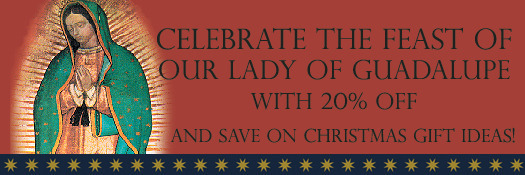
20% off Christmas Gift ideas and in Celebration of the Feast of Our Lady of Guadalupe
Offer ends Tuesday December 13th, 2011 at 12:00 midnight EST. These prices are available online only through Ignatius.com
December 12th marks the Feast of Our Lady of Guadalupe. In 1531 Our Lady appeared to Juan Diego on the Tepeyac Hill in Mexico. In honor of this miraculous event, Ignatius Press is offering 20% off books, films, music and art.
Christmas is just around the corner and Ignatius Press wants to help you with gift ideas for the entire family! Visit the Christmas Gift Guide for a great list of ideas and enjoy up to 20% off. Be sure to take advantage of this deal now, offer ends December 13th.
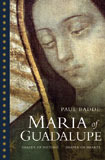 Maria of Guadalupe
Maria of GuadalupeShaper of History, Shaper of Hearts
Paul Badde
In this heartfelt report, Paul Badde tells the fantastic story of the apparition that changed the history of the world.
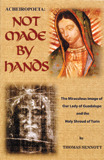 Not Made By Hands
Not Made By Hands
Thomas Mary Sennot
This is the only book of its kind on the two most famous and controversial images in existence-the holy image of Our Lady of Guadalupe on the tilma of Juan Diego, and the sacred image of the crucified Christ on the holy Shroud of Turin.
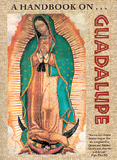 A Handbook on Guadalupe
A Handbook on Guadalupe
Edited by Brother Francis Mary, F.F.I.
This is the most authoritative, complete and up-to-date book on all the facts, history and devotion of the story of Our Lady of Guadalupe. It includes the latest research and contributions from numerous Guadalupe experts including Fr. Christopher Rengers, Dr. Charles Wahlig, Janet Barber, Fr. Martinus Cawley and many others.
 Jesus of Nazareth
Jesus of Nazareth
Holy Week: From the Entrance Into Jerusalem To The Resurrection
Pope Benedict XVI
What happened in the final week of Jesus of Nazareth's earthly life? In Jesus of Nazareth: Holy Week: From the Entrance Into Jerusalem to the Resurrection, Pope Benedict takes up that and other crucial questions.
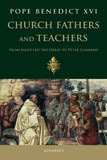 Church Fathers and Teachers
Church Fathers and Teachers
From Leo The Great to Peter Lombard
Pope Benedict XVI
Benedict XVI turns his attention to influential Christian men from the 5th–12th centuries: Benedict, Anselm, Bernard, Gregory the Great, and others.
Charity in Truth
Caritas in Veritate
Pope Benedict XVI
A deluxe edition of the Pope's third Encyclical, which explains the Catholic approach to the economy.
Mother Teresa of Calcutta
A Personal Portrait: 50 Inspiring Stories Never Before Told
Leo Maasburg
In this personal portrait of the beloved nun, Msgr. Maasburg presents fifty amazing stories about Mother Teresa that most people have never heard, wonderful and delightful stories about miracles, small and great, that he was privileged to experience at her side.
24 Christmas Stories to Welcome Jesus
The joy and hope of Christmas are at the heart of this book intended for the whole family. Starting with the 1st of December (like an Advent calendar) each day has a new story, leading up to Christmas. Richly illustrated, this collection includes stories based on the Gospel accounts of the birth of Christ, as well as stories about Advent and Christmas customs.
Jesus in the Manger
Maite Roche
Jesus in the Manger tells the story of Christ's birth to very young children. Warm and inviting illustrations with enchanting, interactive flaps help toddlers learn to recognize Mary, Joseph and baby Jesus, as well as the angel Gabriel, Mary's house in Nazareth and the stable in Bethlehem.
My First Pictures of Mary
Maite Roche
This charming board book with rounded corners introduces toddlers to their Blessed Mother Mary with sweet, four-color pictures.
The Catholic Bible for Children
From the creation of the world to the infancy of the Church, the important stories from both the Old and New Testament are vividly retold and illustrated for young people.
The World's First Love (2nd edition)
Mary, Mother of God
Archbishop Fulton J. Sheen
With his characteristic eloquence and brilliance, Fulton J. Sheen presents a moving portrayal of the Blessed Virgin Mary that combines deep spirituality with history, philosophy and theology.
Abandonment to Divine Providence
With Letters of Father de Caussade on the Practice of Self-Abandonment
Jean-Pierre de Caussade, S.J.
God is to be found in the simplest of our daily activities and especially through total surrender to whatever is His will for each of us. That is the message of this 18th-century inspirational classic by Jean-Pierre de Caussade. Its encouragement to "live in the present moment," accepting everyday obstacles with faith, humility and love, has guided generations of believers to holiness and spiritual peace.
Extreme Makeover
Women Transformed by Christ, Not Conformed to the Culture
Teresa Tomeo
Packed with not only persuasive statistics but also powerful personal testimonies, Extreme Makeover shows that it is not the slogans of the sexual revolution and the women's liberation movement that free and dignify women, but the beautiful teachings of the Catholic Church.
YOUCAT
Youth Catechism of the Catholic Church
Christoph Cardinal Schoenborn
YOUCAT is short for Youth Catechism of the Catholic Church, which was launched on World Youth Day, 2011. Developed with the help of young Catholics and written for high-school age people and young adults, YOUCAT is an accessible, contemporary expression of the Catholic Faith.
Toward the Gleam
A Novel
T. M. Doran
Between the two world wars, on a hike in the English countryside, Professor John Hill takes refuge from a violent storm in a cave. There he nearly loses his life, but he also makes an astonishing discovery—an ancient manuscript housed in a cunningly crafted metal box. Though a philologist by profession, Hill cannot identify the language used in the manuscript and the time period in which it is was made, but he knows enough to make an educated guess—that the book and its case are the fruits of a long-lost, but advanced civilization...
Light Of The World
The Pope, The Church and The Signs Of The Times
Peter Seewald, Pope Benedict XVI
Never has a Pope, in a book-length interview, dealt so directly with such wide-ranging and controversial issues as Pope Benedict XVI does in Light of the World. Taken from a recent week-long series of interviews with veteran journalist Peter Seewald, this book tackles head-on some of the greatest issues facing the world of our time.
DVDs
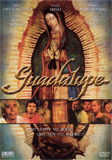 Guadalupe
Guadalupe
In this new drama, Spanish archaeologists Jose Maria and his sister Mercedes travel to Mexico to investigate newly discovered information on the Virgin of Guadalupe. During their journey they learn the history of Mexico and the meaning behind many of its traditions. The story of the 16th century native Mexican, St. Juan Diego, and his encounters with the Virgin, is interwoven with the present-day story of Jose Maria, who reassesses his own neglect of his wife and children, and Mercedes, who comes to terms with her desire for a home and family. As these stories unfold, Our Lady of Guadalupe reveals herself to each of the characters, guiding them toward the happiness and serenity they seek.
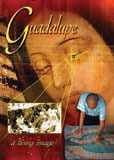 Guadalupe
Guadalupe
A Living Image
When the Virgin Mary appeared to Juan Diego in Mexico in 1531 to give him a message for the Bishop, she left a miraculous image of herself on his tilma. Centuries later, the results of scientific analysis of the image on the tilma are amazing. An extraordinary discovery reveals the Spanish origin (from Extremadura, Spain) of the name of Guadalupe and its incredible connection with the Evangelist St. Luke.
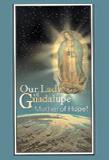 Our Lady of Guadalupe
Our Lady of Guadalupe
A stirring documentary that tells the story in complete detail of the history of the appearance of Our Lady of Guadalupe in Mexico in 1531. It urges us to heed the message of the Pope to promote Our Lady to end abortion and to evangelize America. It tells of miracles and conversions through the presence of Our Lady's image.
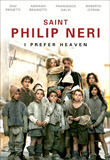 Saint Philip Neri
Saint Philip Neri
I Prefer Heaven
An epic feature film on the famous "Apostle of Rome" and great friend of youth in the 16th century. One of the most popular saints of all time, St. Philip Neri was widely known for his great charity, deep prayer life, and tremendous humor. Hoping to join St. Ignatius of Loyola's new order of Jesuits and be a missionary to India, Philip was instead guided by Providence to seek out the poor and abandoned youth of Rome to catechize them in the faith and help them find a better life. This captivating film highlights Neri's great love for youth, his warm sense of humor, contagious joy, deep mystical spirituality, and his amazing gift for miracles.
Archbishop Fulton Sheen
Servant of All
This special double DVD film package includes an acclaimed new film on the great Archbishop Fulton Sheen, Servant of All, along with five of his most popular television programs from his #1 rated TV series, Life is Worth Living.
Juan Diego
The Messenger of Guadalupe
DVD from CCC of America tells the true story of the appearance of Our Lady in 1531 to the humble Aztec Indian Juan Diego on the Tepeyac Hill in Mexico. With outstanding animation this film tells of the great miracle Our Lady of Guadalupe performed on the tilma of Juan Diego to convince the Bishop to build a shrine in her honor to help bring the Faith to the Mexican people.
Of Gods and Men
Eight French Trappist monks live in harmony with their Muslim brothers in a monastery perched in the mountains of North Africa in the 1990s. When a crew of foreign workers is massacred by Islamic terrorists, fear sweeps through the region. Should the monks leave their home and the people they serve? Should they stay despite the threat of violent death?
Changing Sides
How a Pro-life Presence Changed the Heart of a Planned Parenthood Director
This film tells the powerful true story of the conversion of a dedicated Planned Parenthood director to a leading Pro-life Activist. Abby Johnson was the director of the abortion facility that was the launching pad of the bold new pro-life effort - 40 Days for Life.
No Greater Love
A Unique Portrait of the Carmelite Nuns
A highly acclaimed, multiple award-winning documentary, No Greater Love follows in the wake of the great success of a similar film, Into Great Silence, as it gives a unique insight into this closed world of these nuns where the modern world's materialism is rejected; they have no television, radio or newspapers.
MUSIC
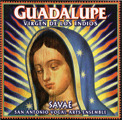 Guadalupe
Guadalupe
The San Antonio Vocal Arts Ensemble blends its seven voices with the traditional wind and precussion instruments of the Aztecs to create sacred music that is a spellbinding fusion of Renaissance European and Native Latin American cultures.
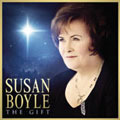 The Gift
The Gift
Susan Boyle
Susan Boyle stunned the world with her burst onto the scene on Britain's Got Talent and her record-breaking first album. Her new Christmas album is sure to be another best-seller, one that combines traditional hymns with some personal favorites of Susan that showcase her glorious voice.
 Jackie Evancho: O Holy Night
Jackie Evancho: O Holy Night
Jackie Evancho is the 10-year-old Catholic soprano prodigy whose performances on "America's Got Talent" won the hearts of millions and brought her into the national spotlight. This new CD/DVD set features the Christmas favorites O Holy Night and Silent Night plus the beautiful classics Pie Jesu and Panis Angelicus which Jackie performed on AGT.
 His Love Remains
His Love Remains
Collin Raye
At age 23, Collin Raye converted to Catholicism, searching and believing that "there had to be more" than what he experienced in other churches. Collin became an American country music superstar, selling more than 7 million records, while charting 15 #1 hits in the 1990's. His new release, His Love Remains, captures for the first time the source of his rock solid personal inner strength which carried him "through it all" during many trials of personal suffering, including the loss of his precious granddaughter Haley, who died from a rare neurological disease.
Noel
The Priests
The singing priestly trio from Ireland who broke the Guinness world record for the fastest selling classical debut alum of all time release their third album with some of the most celebrated and cherished Christmas carols ever.
O Night Divine
L'Angelus
The year's best new Christmas album by the refreshing, incredibly talented young singers and musicians L'Angelus, a Catholic Irish Cajun family band from Louisiana. Acoustic guitar, orchestral piano, and chamber orchestra arrangements bring together sounds both old and new to sing timeless Christmas classics with the heartfelt beauty they deserve.
Our Lady, Mother of God
18 Chants to Celebrate the Virgin Mary
This glorious anthology features Marian chants from the two great traditions of Christianity, the East and the West, from the finest chant monasteries in the world. These are chants born from prayer and contemplation. They praise God through Our Lady.
Everything Changes
Marie Bellet
The first new album by the Nashville songbird in several years is a winner. This is not "Marriage and Family 101" anymore! A bit further along on that journey, with more experiences of life, family, love and marriage, these songs reflect the changes that come with launching kids out into the world.
The Way
Music from the Motion Picture
The lovely, meditative soundtrack from the popular new movie starring Martin Sheen and Emilio Estevez about an American doctor who makes the pilgrimage of the ancient route Camino de Santiago, the Way of St. James, in honor of his deceased son. The beautiful Original score by Tyler Bates is augmented by well-beloved songs by James Taylor, Alanis Morissette, Nick Drake, David Gray and others. 21 songs total.
ART
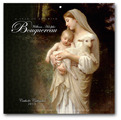 2012 Catholic Calendar
2012 Catholic Calendar
Lovely, high quality calendar with all the Catholic feast days and stunning paintings by famous artist Bouguereau, including Innocence, Song of the Angels, Queen of the Angels and more. 12" x 12" (opens to 12" x 24")
Veronese Our Lady of Guadalupe
Beautifully designed statue of sturdy resin, dipped in bronze, with lightly hand-painted details.
What is next for Vatican/SSPX dialogue?
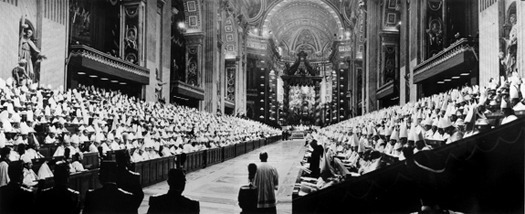
At Catholic World Report, Jimmy Akin takes a close look at a recent article in the Vatican's newspaper and its implications for the on-going discussions between the Vatican's Congregation for the Doctrine of the Faith and the traditionalist Society of St. Pius X. The article—though published without identifying the author—seems to be the work of someone close to those discussions. Akin asks, why was the essay published now, following close on the heels of several provocative statements from SSPX leaders? What purpose is served by offering the public a rare glimpse into the private discussions between the society and the Vatican? And how is the CDF proposing Vatican II be understood in light of the Church's traditional teachings on doctrine, authority, and assent?
Click here to read Akin's article, exclusively at Catholic World Report.
How arrogant is Richard Dawkins?
So arrogant that when he publicly disagrees with himself, he doesn't think Christians (or anyone else, apparently) will notice.
As Mother of God, our Lady is without equal,...
... surpassing by far all other created persons, whether angels or men. After the human nature of the Son, no created entity is closer to the Trinity. According to St Thomas, Gabriel's words at the Annunciation, 'The Lord is with thee', express his recognition that the Jewish maiden is closer than he or any other angel is to the Three-Personed God:
She surpasses the angels in her familiarity with God. The angel indicated this when he said, 'The Lord is with thee', as if to say, 'I therefore show thee reverence, because thou art more familiar with God than I am, for the Lord is with thee. The Lord, the Father, is with thee, because thou and He have the same Son, something no angel or any other creature has. "And therefore the Holy which shall be born of thee shall be called the Son of God" (Lk 1: 35). The Lord, the Son, is with thee, in thy womb. "Rejoice and praise 0 thou habitation of Zion, for great is He that is in the midst of thee, the Holy One of Israel" (Is 12:6).' The Lord is therefore with the Blessed Virgin in a different way than He is with the angel, for He is with her as Son, but with the angel as Lord. 'The Lord, the Holy Spirit, is with thee, as in a temple.' Hence she is called 'the temple of the Lord', 'the sanctuary of the Holy Spirit', because she conceived by the Holy Spirit. 'The Holy Spirit shall come upon thee' (Lk 1:35). In this way, therefore. the Blessed Virgin is more familiar with God than the angel is, for the Lord Father, the Lord Son, the Lord Holy Spirit are with her, in other words, the whole Trinity. That is why we sing of her: 'Noble resting-place of the whole Trinity'.
Our Lady is without compare in her objective dignity, and so it is fitting that she should be unrivalled in her subjective sanctity. To prepare her for the task of being Mother to the Son, both physically and spiritually, God the Father bestows upon her an incomparable plenitude of sanctifying grace, the, infused virtues and the Gifts of the Holy Spirit.
St Thomas argues as follows. The nearer something is to any kind of source, the more it shares in the effects of that source. The part of the lawn nearest to the sprinkler will be greener than the more remote parts. Now Christ is the source (grace, as author in His Divinity and as instrument in His humanity, and the Blessed Virgin is closer to Him than ant other creature is, because it was from her that He received His human nature. 'It was therefore necessary for her to receive from Christ a plenitude of grace greater than that anyone else.'
Even from her conception, she was full of grace. By the anticipated merits of her Son, she was preserved from all stain of Original Sin in the first moment of her conception. Now Original Sin is the privation of sanctifying grace. If, therefore, our Lady was preserved from that privation, if she lacked the lack of grace, she was–putting it positively–endowed in the first moment of her existence with the overflowing fulness of the redeeming grace of her Son. She never lacked grace nor did she ever lose it. By a special privilege she was free from all personal sin, mortal and venial, even from the inclination to sin. All men are sinners, says St Augustine, 'except the Holy Virgin Mary, whom, for the sake of the honour of the Lord, I want to exclude altogether from any talk of sin'.
When, then, we contemplate all the actions that make up our Lady's motherhood, ('Welcome in womb and breast,/ Birth, milk, and all the rest'), we should remember that these humble human realities are endowed, through Mary's supernatural perfections, with a spiritual beauty surpassing that of any other mother in human history. 'And she brought forth her first-born son and wrapped Him up in swaddling clothes and laid Him in a manger, because there was no room for them in the inn' (Lk 2:7).
From:
Carl E. Olson's Blog
- Carl E. Olson's profile
- 20 followers




